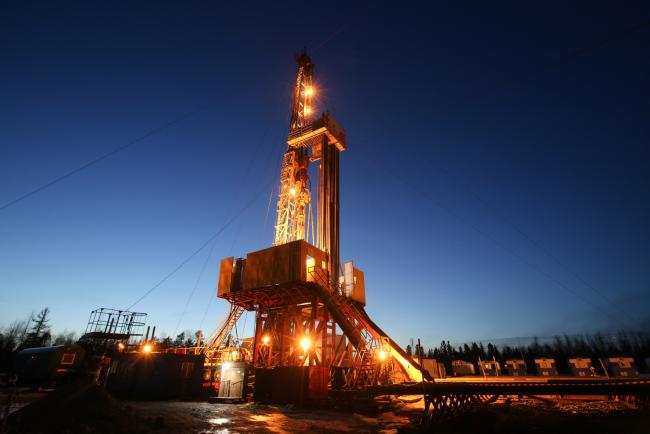(Bloomberg) -- Russia is showing signs of weakening its commitment to oil-supply cuts as production rises before crucial talks with OPEC about the future of the agreement.
The nation boosted crude supply to the highest in 14 months in the first week of June as some companies breached their caps, said a person with knowledge of the matter. While both the Kremlin and oil bosses remain publicly committed to the accord, production of 11.09 million barrels a day exceeds the 10.95 million limit agreed with OPEC, the official said. The figures were first reported by Interfax.
Saudi Arabia and Russia will propose a gradual production increase at the June 22-23 meetings of the Organization of Petroleum Exporting Countries and its allies in Vienna, intended to offset supply disruptions in Iran and Venezuela. Moscow in particular is showing willingness to adjust the agreement, with President Vladimir Putin saying last month that the “arrangements were never intended to remain in force forever” and companies asking publicly for more “flexibility.”
“All we see now is a preparation for the talks,” said Andrey Polischuk, an energy analyst at Raiffeisen Centrobank in Moscow. “Russia’s key argument would be that the deal has reached its goal -- the market is balanced -- and now it’s time to think of a supply increase.”
Saudi Arabia and Russia still want to try to convince other producers that it’s time to increase output. Some members of the group have signaled they are opposed to such a move, notably Iran and Venezuela which face significant production declines due to U.S. sanctions and an economic crisis, respectively. It’s not clear whose view will prevail next week.
Spare Capacity
Russia has never shared an official estimate of how much idle production capacity it could bring back once the cuts deal is over. Forecasts vary from 215,000 barrels a day from Renaissance Capital to some 500,000 barrels seen by state-run Gazprom (MCX:GAZP) Neft PJSC, the nation’s No. 3 producer.
The country cut its production by 300,000 barrels a day from the baseline for the deal -- the 11.25 million pumped in October 2016. That level was a one-time post-Soviet record, achieved after Russia ramped up output in advance of the agreement with OPEC.
Not all Russian companies would be able to restore production back to that level this year, according to Polischuk and Ildar Davletshin, an energy analyst at Wood & Co. Financial Services AS in London. They identified Rosneft PJSC, Gazprom Neft and Tatneft PJSC as having the largest growth potential among the top-five producers.
Rosneft, which pumps more than 40 percent of Russia’s oil, has as much as 150,000 barrels a day of spare capacity, with some 100,000 barrels possible to add “in just a few days,” Aton LLC analysts wrote earlier this month, citing a meeting with the company’s executives. Gazprom Neft said on Saturday it can add 37,000 to 40,000 barrels a day within one or two months, compared to 34,000 barrels it cut under the deal.
Others could boost production within three to six months at older fields in West Siberia, but that wouldn’t be sustainable for a prolonged period, said Polischuk. It makes more sense for them to increase spending on new projects, which wouldn’t deliver such fast growth, he said.
Lukoil PJSC, the second largest producer that is currently struggling with natural decline at aging Siberian fields, could “relatively quickly” roll back half its output cuts, while the remainder will need “some time,” it said in May.
“Russia will most likely recover its production in full next year only,” said Davletshin. “And even that wouldn’t be a game changer for the global market given a drop in Venezuela and possible declines in Iran.”
